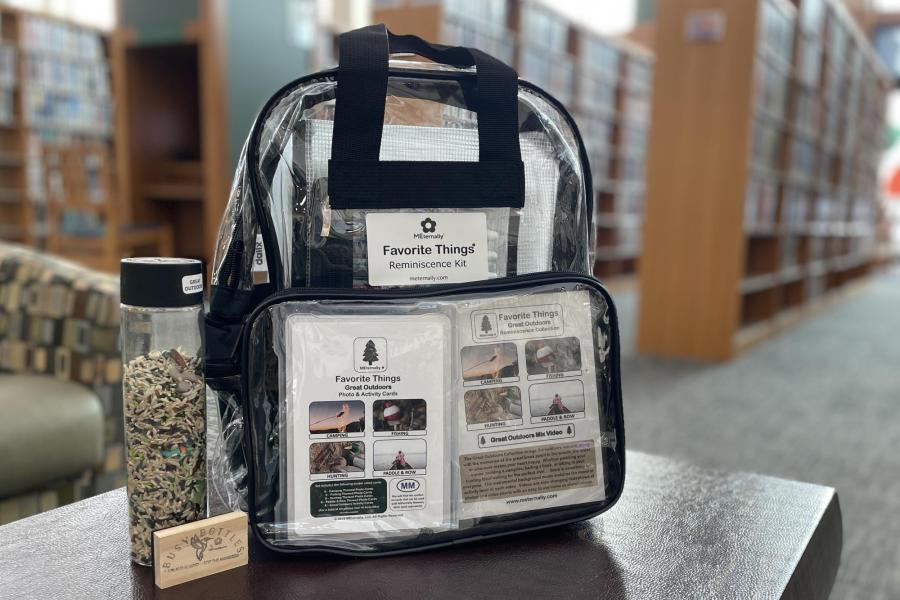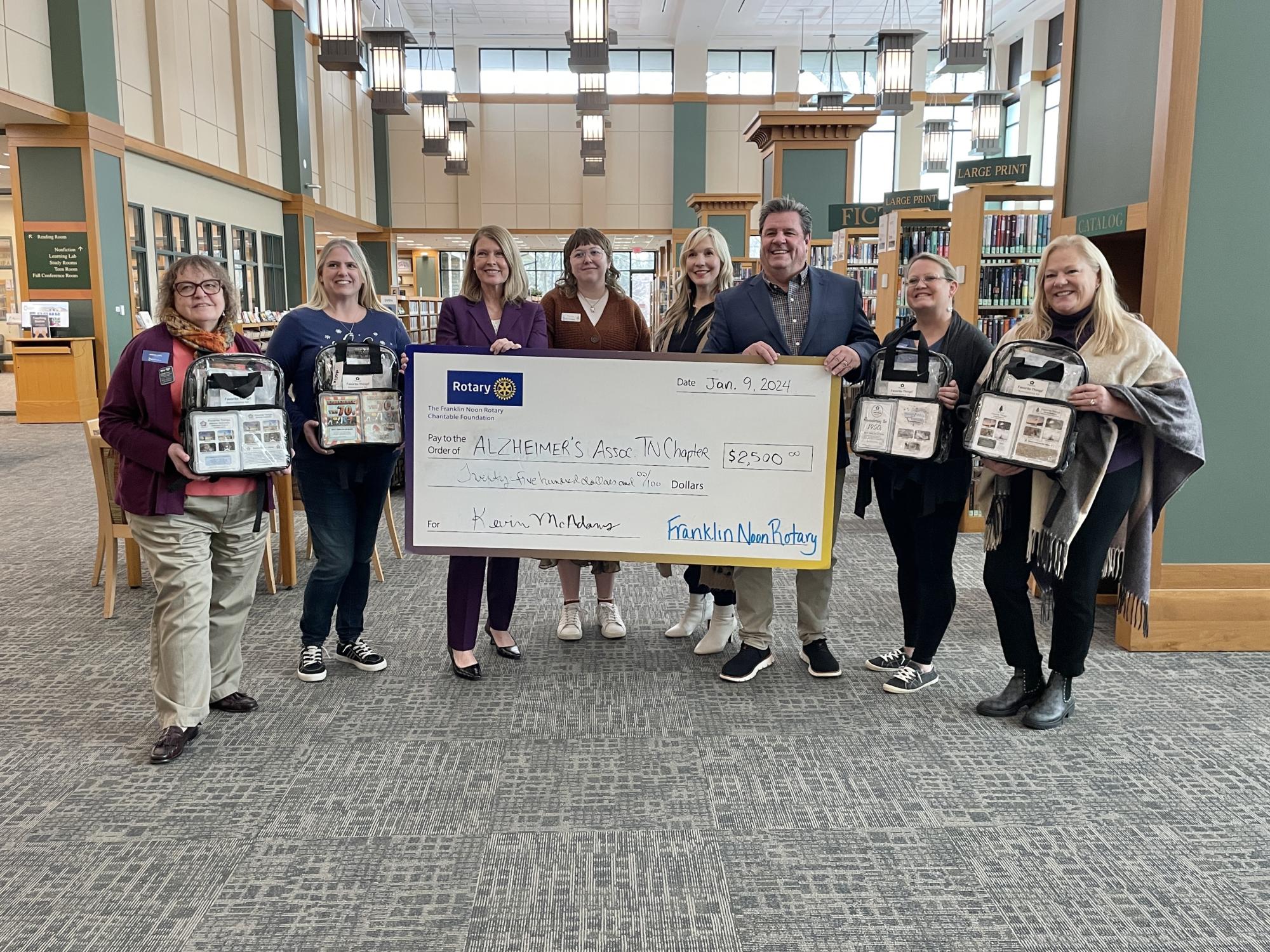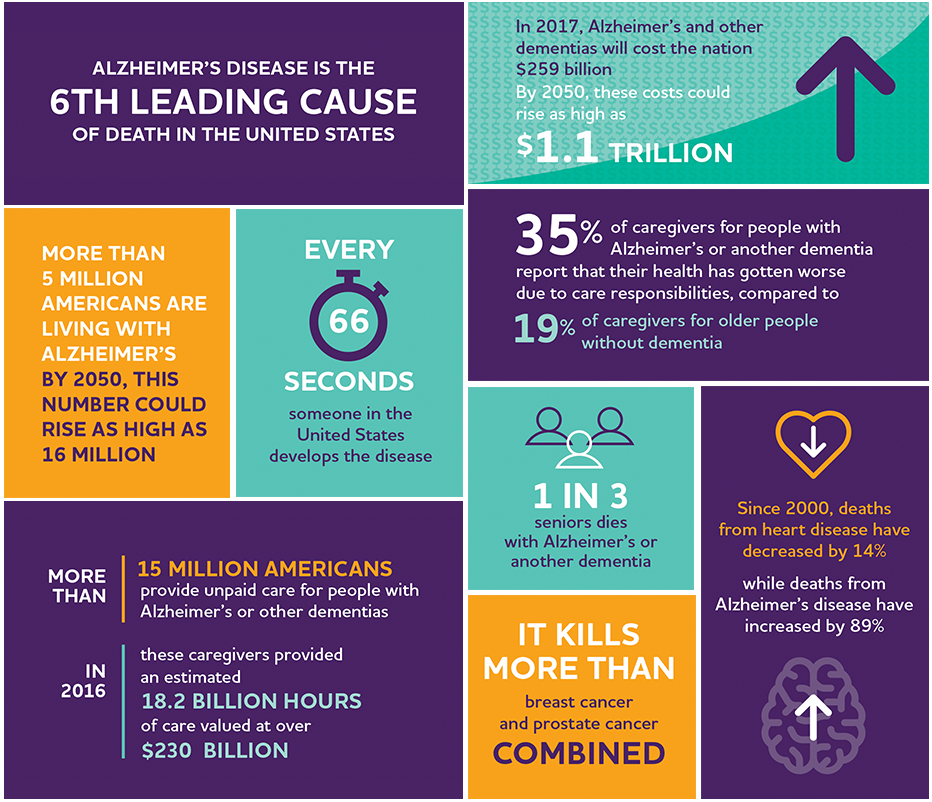Brentwood library memory kits help fulfill community need

By KATE COIL
TT&C Assistant Editor
A new program at Brentwood’s John P. Holt Library is aiming to help those diagnosed with Alzheimer’s disease and other forms of dementia along with their loved ones.
A total of 10 memory kits have been made available at the library through the Alzheimer’s Association, financed by donations from the Franklin Noon Rotary Club. Kept in clear backpacks, memory kits provide items that stimulate and entertain those with Alzheimer’s including books, puzzles, coloring books, and other items.

Laura Musgrave, a volunteer and advocate with the Alzheimer’s Association, has worked with the organization to declare Alzheimer’s a public health issue in Tennessee in 2019, opening the door for more funding and research, as well as promoting education about Alzheimer’s in communities across Tennessee. Musgrave’s sister Joanne died because of Alzheimer’s at the age of 59.
Musgrave said the kits at the Brentwood library are aimed at capturing the interests of Alzheimer’s patients as well as helping to focus their memory.
“A lot of people with Alzheimer’s tend to fidget,” she said. “There are even fidget blankets that allow them to do that. It gives them something to do. The Brentwood Library has kits that are themed after the 50s, 60s, and 70s. There are also kits themed after cats, dogs, and the different seasons. Alzheimer’s patients have longer memories; it’s short term they have problems with. The kits have flash cards in them, so you can show them the card and it will trigger a good memory for them.”
In addition to patients, Musgrave said the kits can also benefit caregivers and some even include self-care guides for caregivers.
“Being a caregiver is a 24/7 job,” she said. “Even if your loved one spends 20 minutes with this kit, you know they are in a safe spot and being occupied. It also sparks good memories for them. It’s an activity you can do together or alone if the caregiver just needs to take a breather for a few minutes.”
Mary Katherine Rooker, community engagement and outreach coordinator with the John P. Holt Brentwood Library, said the kits highlight an important community need. The Williamson County Library system has offered for the past seven years a series of lunch and learn classes through the Alzheimer’s Association that provides education for caregivers and family members.
“This is something we are all going to be touched by, whether it is a family member, or we see friends going through it with their family members,” Rooker said. “It’s a wonderful gift and a much-needed gift for our community.”

Rooker said the kits can either be enjoyed at the library itself or checked out like any other items available at the library and returned after a three-week period. The kits are a part of a growing concept known as the “library of things,” which at the Brentwood library includes a seed catalogue, binoculars, and even a ukulele.
“A library is more than just books,” she said. “It’s about offering people a variety.”
Rooker said the memory kits are helping meet an important need in the community.
“You come to the library because you are looking for something, whether you’re looking for a book or a DVD or you want to read the newspaper,” Rooker said. “Our patrons were asking for a memory care program. We are always looking for ways we can better serve our community, and this was an obvious choice of something we can do. Our director was looking into what we could do and learned about the memory care kits at the Williamson County Library. We asked how they implemented their program, and they put us in touch with Laura. It grew from there.”
Musgrave said libraries are often a safe space for people, especially those with dementia or Alzheimer’s
“My sister Joanne was diagnosed with dementia at the age of 49,” she said. “I didn’t know anything about Alzheimer’s, and my first thought was to go to the library so I could get the most information. The Brentwood library is a great spot. It has a walking trail. It can be a really great outing for a caregiver to bring their loved one to work a puzzle at the puzzle table, walk on the story book trail, and sit and read by the fireplace.”
More than 6 million Americans presently suffer from Alzheimer's disease, which is the leading cause of dementia among older adults. Other common forms of dementia include Lewy body dementia, frontotemporal disorders, and vascular dementia, and it is not uncommon for patients to be diagnosed with two or more forms of dementia.
Sufferers often experience greater memory loss and cognitive difficulties, which may lead to them wandering and getting lost, having issues handling money or paying bills, taking longer to complete daily tasks, and sometimes even have personality and behavior changes. While the majority of sufferers are 65 or older, signs of early on-set Alzheimer's can be detected in patients in their 30s.
“Alzheimer’s doesn’t discriminate,” Musgrave said. “It’s not really an aging disease. Early on-set people are getting it in their 40s. Alzheimer’s is the third leading cause of death in Williamson County, and we are fourth in the state for reported cases.”
Musgrave said libraries and other community centers can put together kits themselves or purchase them from organizations like MEternally. Musgrave suggested community leaders can reach out to local civic organizations to help finance their own kits.
